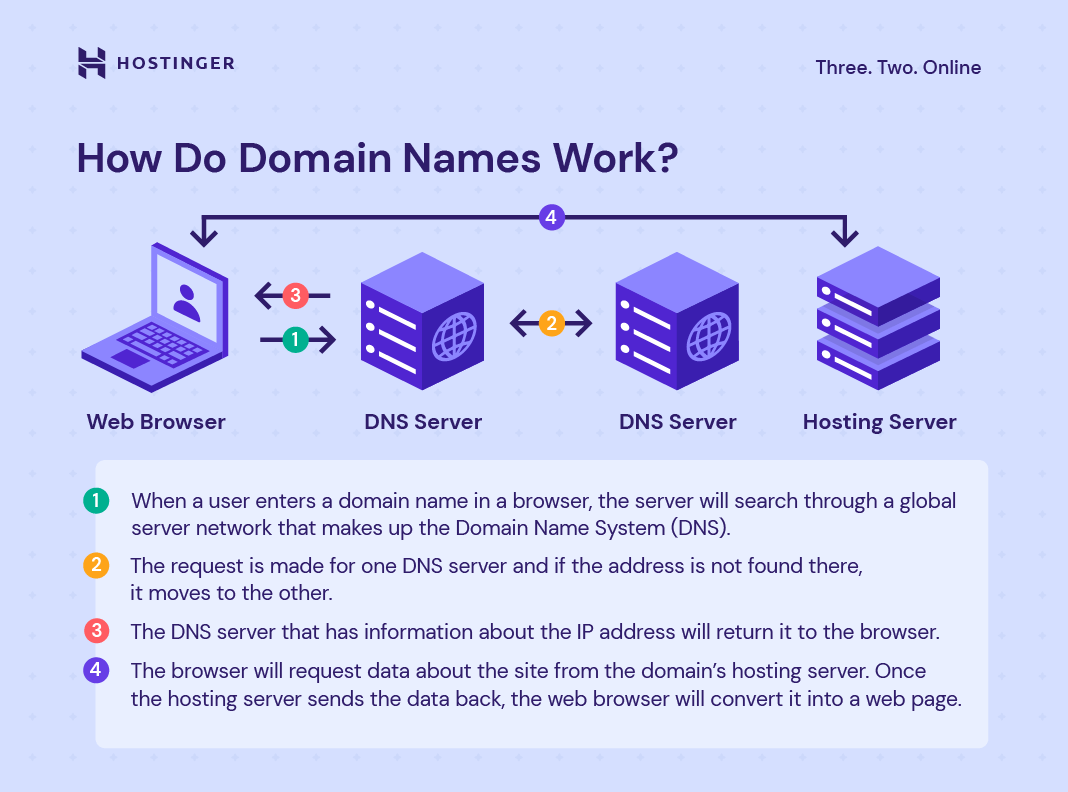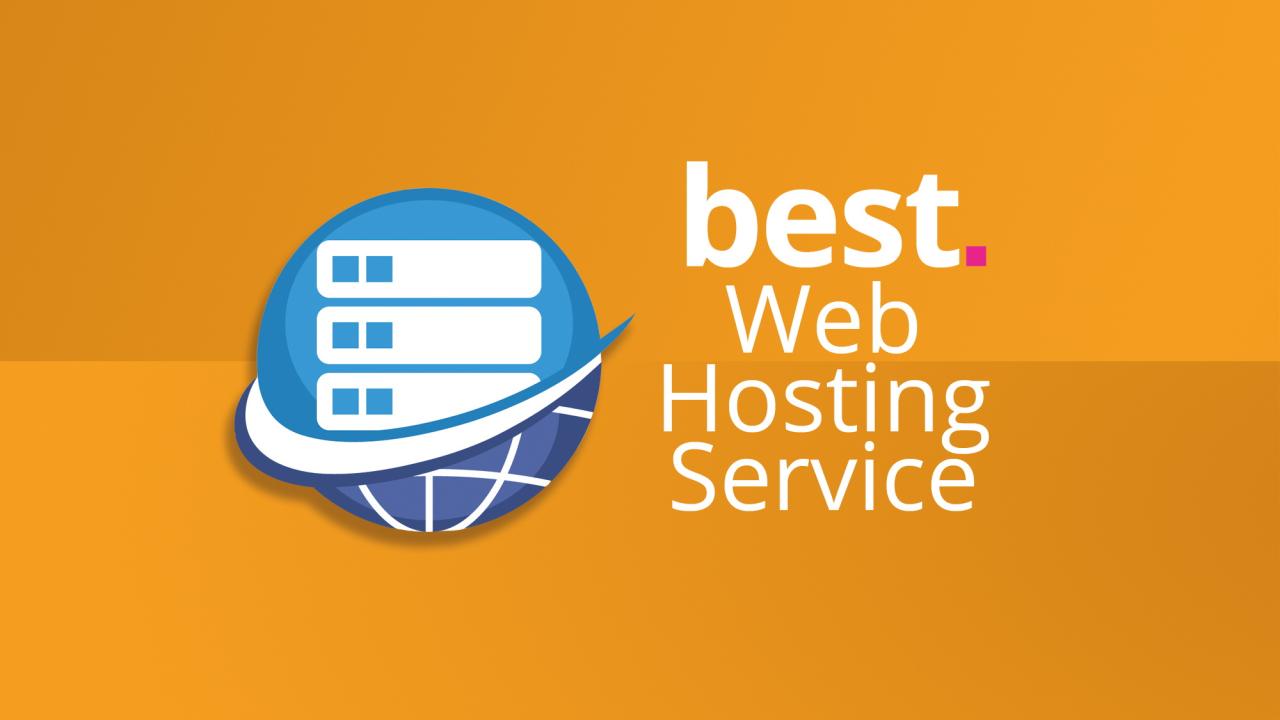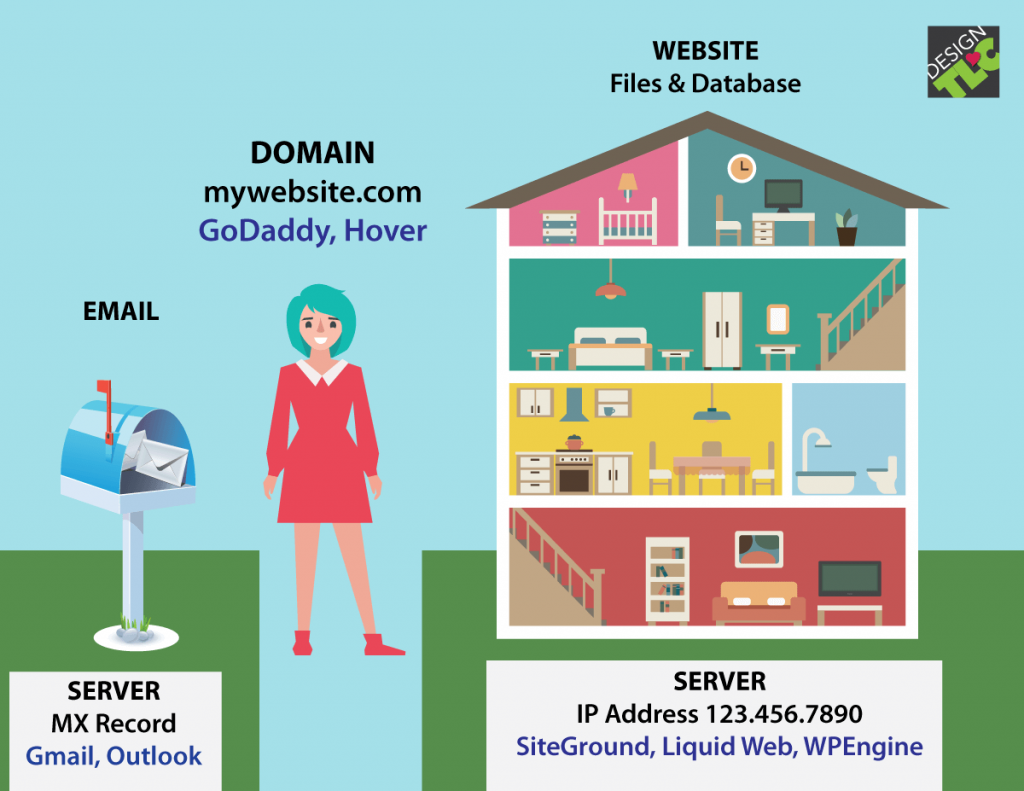Domain name registration and website hosting companies are the unsung heroes of the digital age, providing the foundation for countless online ventures. From personal blogs to sprawling e-commerce platforms, these companies empower individuals and businesses to establish their presence on the World Wide Web. Understanding the intricacies of domain name registration and website hosting is crucial for anyone seeking to navigate the vast landscape of the internet.
The process begins with choosing a domain name, which serves as your website’s unique address. Domain registrars act as intermediaries, facilitating the acquisition of your desired domain. Once registered, you’ll need a web hosting service to store your website’s files and make them accessible to visitors. Web hosting providers offer a range of plans, from shared hosting, which is budget-friendly and ideal for small websites, to dedicated hosting, which provides maximum performance and control for demanding applications.
Domain Name Registration Process
Securing a domain name is the first step in establishing your online presence. It’s like choosing a unique address for your website, making it easily accessible to users. This process involves a few key steps, from selecting a registrar to completing the registration.
Choosing a Domain Registrar
A domain registrar is a company that manages the registration of domain names. They act as intermediaries between you and the Internet Corporation for Assigned Names and Numbers (ICANN), the organization responsible for overseeing domain names. Choosing the right registrar is crucial, as they will handle your domain name’s renewal, security, and other important aspects.
- Reputation and Reliability: Look for registrars with a solid reputation for reliability and customer support. Check online reviews and forums to gauge their performance.
- Pricing and Features: Compare prices and features offered by different registrars. Some offer discounts for multiple-year registrations or additional services like website hosting.
- Domain Name Availability: Ensure the registrar has a comprehensive search tool to check for the availability of your desired domain name.
- Customer Support: Choose a registrar with responsive and helpful customer support, in case you need assistance with your domain name.
Searching for Domain Name Availability
Once you’ve chosen a registrar, you can start searching for available domain names. This involves entering your desired domain name and checking if it’s already taken. If it’s available, you can proceed with the registration process.
Completing the Registration Process, Domain name registration and website hosting companies
The registration process usually involves providing your personal information, choosing a domain name, selecting a registration period, and paying the registration fee. Some registrars may also offer additional services like domain privacy protection, which hides your personal information from public records.
Domain Extensions
Domain extensions, also known as top-level domains (TLDs), are the suffixes that follow the dot (.) in a domain name, such as “.com”, “.net”, “.org”, and “.info”. Choosing the right domain extension is important for branding and target audience.
- .com: The most popular and widely recognized extension, suitable for businesses and general websites.
- .net: Originally intended for network-related websites, but now widely used for various purposes.
- .org: Typically used by non-profit organizations and charitable groups.
- .info: Intended for informational websites, but now used for a variety of purposes.
- Country-Specific Extensions: Such as “.uk” for the United Kingdom, “.ca” for Canada, and “.au” for Australia, are often used by businesses and individuals within those countries.
- New Domain Extensions: ICANN has introduced new domain extensions, such as “.shop”, “.app”, and “.tech”, to cater to specific industries or purposes.
Reputable Domain Registrars
There are many reputable domain registrars available. Some popular options include:
- GoDaddy: One of the largest domain registrars, offering a wide range of services and features.
- Namecheap: Known for its affordable prices and user-friendly interface.
- Google Domains: Offers a simple and straightforward registration process, integrated with Google services.
- Hover: Focuses on providing a clean and minimalist registration experience.
Website Hosting Options

Choosing the right website hosting plan is crucial for your website’s performance, security, and overall success. Several hosting options cater to different needs and budgets. Understanding the differences and factors to consider will help you make an informed decision.
Types of Web Hosting
Different hosting types offer varying levels of resources, control, and performance. Here’s a breakdown of common options:
- Shared Hosting: In shared hosting, multiple websites share the same server resources. It’s the most affordable option, suitable for small websites with low traffic. However, shared resources can lead to performance issues if other websites on the server experience heavy traffic.
- VPS Hosting: Virtual Private Server (VPS) hosting provides a dedicated portion of a server’s resources, offering better performance and control than shared hosting. It’s a good option for websites with moderate traffic and specific software requirements.
- Dedicated Hosting: Dedicated hosting provides an entire server exclusively for your website, offering maximum performance and control. It’s ideal for high-traffic websites, demanding applications, and businesses requiring high security.
- Cloud Hosting: Cloud hosting distributes your website across multiple servers, ensuring high availability and scalability. It’s a flexible option suitable for websites with fluctuating traffic and demanding applications.
Factors to Consider When Choosing a Hosting Plan
Several factors influence the best hosting plan for your website. Consider the following:
- Website Traffic: Estimate the expected traffic volume to your website. Shared hosting might suffice for low traffic, while VPS or dedicated hosting is better for high-traffic websites.
- Storage Requirements: Determine the amount of storage space needed for your website files, databases, and other content. Shared hosting offers limited storage, while dedicated hosting provides ample space.
- Security Needs: Assess your website’s security requirements. Dedicated hosting offers enhanced security features, while cloud hosting provides built-in security measures.
- Budget: Consider your budget constraints. Shared hosting is the most affordable option, while dedicated hosting is the most expensive.
Pros and Cons of Different Hosting Types
Each hosting type has advantages and disadvantages.
Shared Hosting
- Pros: Affordable, easy to set up, suitable for small websites with low traffic.
- Cons: Limited resources, performance issues if other websites experience heavy traffic, less control over server settings.
VPS Hosting
- Pros: Better performance than shared hosting, more control over server settings, suitable for websites with moderate traffic and specific software requirements.
- Cons: More expensive than shared hosting, less control than dedicated hosting, requires technical expertise for management.
Dedicated Hosting
- Pros: Maximum performance, complete control over server settings, ideal for high-traffic websites, demanding applications, and businesses requiring high security.
- Cons: Most expensive option, requires technical expertise for management, can be overkill for small websites with low traffic.
Cloud Hosting
- Pros: High availability, scalability, flexible resource allocation, suitable for websites with fluctuating traffic and demanding applications.
- Cons: Can be more expensive than traditional hosting, requires technical expertise for management, security can be complex.
Key Features of Domain Name Registration and Website Hosting Companies

Choosing the right domain registrar and web hosting provider is crucial for establishing a strong online presence. Both services offer essential features that contribute to a successful website. This section delves into the key features provided by domain registrars and web hosting companies, highlighting their importance in building and maintaining a website.
Domain Registrar Features
Domain registrars are responsible for managing and registering domain names. They provide a range of tools and services to facilitate the domain name registration process and ensure smooth operation.
- Domain Management Tools: Domain registrars offer intuitive dashboards and tools to manage your domain names effectively. These tools allow you to renew your domain, update contact information, set up DNS records, and manage multiple domains from a single interface.
- DNS Settings: Domain Name System (DNS) settings are crucial for directing visitors to your website. Domain registrars provide tools to configure DNS records, such as A records, CNAME records, and MX records, ensuring your website is accessible and email services function correctly.
- Privacy Protection: Protecting your personal information is paramount. Domain registrars offer privacy protection services that mask your contact information from public databases, safeguarding your privacy and preventing unwanted solicitations.
- Domain Transfer: If you need to move your domain name to a different registrar, domain registrars facilitate a seamless transfer process. This ensures minimal downtime and prevents any disruption to your website’s functionality.
Website Hosting Features
Web hosting companies provide the infrastructure to host your website, making it accessible to users on the internet. They offer a range of features designed to support website development, performance, and security.
- Website Builder Tools: Many web hosting companies provide website builder tools that allow you to create a website without any coding knowledge. These tools offer pre-designed templates, drag-and-drop functionality, and easy customization options, simplifying the website creation process.
- Email Accounts: Web hosting companies typically offer email accounts associated with your domain name. These accounts enhance professionalism by providing branded email addresses for your business or personal use.
- Security Measures: Website security is paramount to protect your website and user data. Web hosting companies provide security features such as firewalls, malware scanning, and SSL certificates to safeguard your website from cyber threats.
- Customer Support: Web hosting companies offer customer support channels to assist you with any technical issues or questions you may have. These channels can include live chat, phone support, and email ticketing systems, ensuring prompt and efficient assistance.
Comparison of Domain Registrars and Web Hosting Providers
The following table compares the features offered by popular domain registrars and web hosting providers. This table highlights key features and helps you identify providers that best suit your needs.
| Feature | Domain Registrar | Web Hosting Provider |
|---|---|---|
| Domain Management Tools | GoDaddy, Namecheap, Google Domains | HostGator, Bluehost, SiteGround |
| DNS Settings | GoDaddy, Namecheap, Google Domains | HostGator, Bluehost, SiteGround |
| Privacy Protection | GoDaddy, Namecheap, Google Domains | HostGator, Bluehost, SiteGround |
| Website Builder Tools | GoDaddy, Namecheap, Wix | HostGator, Bluehost, Squarespace |
| Email Accounts | GoDaddy, Namecheap, Google Domains | HostGator, Bluehost, SiteGround |
| Security Measures | GoDaddy, Namecheap, Google Domains | HostGator, Bluehost, SiteGround |
| Customer Support | GoDaddy, Namecheap, Google Domains | HostGator, Bluehost, SiteGround |
Factors to Consider When Choosing a Provider
Choosing the right domain registrar and web hosting company is crucial for your online presence. It’s essential to select a provider that aligns with your needs and offers reliable services. Consider these key factors to ensure a positive experience:
Reputation and Reliability
The reputation and reliability of a domain registrar and web hosting company are paramount. A trustworthy provider ensures the security and accessibility of your website and domain name.
- Research online reviews and testimonials: Explore independent platforms like Trustpilot, G2 Crowd, and SiteJabber to gain insights into customer experiences. Positive feedback and high ratings indicate a provider’s commitment to quality and customer satisfaction.
- Check industry awards and recognitions: Look for awards and recognitions from reputable organizations in the web hosting industry. These accolades signify a provider’s excellence and adherence to industry standards.
- Verify uptime guarantee and service level agreements (SLAs): A reliable provider offers a high uptime guarantee, typically exceeding 99.9%, ensuring minimal downtime for your website. SLAs define the provider’s commitment to service quality and response times.
Pricing and Value
Pricing is a significant factor, but it’s essential to consider value for money. Look for providers offering competitive pricing without compromising on features, performance, or support.
- Compare pricing plans and features: Analyze different pricing plans and compare the features included. Choose a plan that meets your current needs and allows for future scalability.
- Consider hidden fees and renewal costs: Be aware of potential hidden fees like domain renewal fees, setup charges, or additional services. Compare renewal costs with initial prices to ensure long-term affordability.
- Evaluate the value of included features: Assess the value of features included in each plan, such as storage space, bandwidth, email accounts, and security tools. Choose a provider that offers the features you need at a reasonable price.
Customer Support
Reliable customer support is essential for resolving issues and receiving assistance when needed.
- Check availability and response times: Explore the availability of customer support channels, including phone, email, live chat, and ticketing systems. Evaluate response times and ensure prompt assistance is available.
- Review customer support quality: Seek feedback from existing customers about the quality and responsiveness of customer support. Look for positive reviews and testimonials highlighting helpful and efficient assistance.
- Assess the availability of knowledge base and documentation: A comprehensive knowledge base and documentation can provide self-service solutions for common issues. Evaluate the completeness and clarity of available resources.
Security Features
Security is crucial for protecting your website and data from threats. Look for providers offering robust security features.
- Verify security certifications and compliance: Check for certifications like SSL/TLS encryption, PCI DSS compliance, and GDPR compliance. These certifications indicate a provider’s commitment to data security and adherence to industry standards.
- Explore security features offered: Investigate the security features included in different plans, such as firewalls, malware scanning, intrusion detection systems, and daily backups. Choose a provider offering a comprehensive suite of security measures.
- Inquire about security practices: Ask about the provider’s security practices, including regular security audits, vulnerability assessments, and incident response procedures. A proactive approach to security is crucial for protecting your website.
Terms of Service and Privacy Policies
Review the provider’s terms of service and privacy policies to understand your rights and responsibilities.
- Understand domain name ownership and transfer policies: Review the terms related to domain name ownership, transfer procedures, and dispute resolution processes. Ensure clarity on your rights and responsibilities regarding domain name management.
- Analyze data privacy and security provisions: Scrutinize the privacy policy to understand how the provider collects, uses, and protects your personal data. Ensure compliance with relevant data privacy regulations like GDPR.
- Evaluate the provider’s cancellation and refund policies: Understand the provider’s cancellation and refund policies in case you need to terminate your service. Look for clear and fair terms regarding refunds and service termination.
Domain Name and Website Hosting Security
In the digital age, where businesses and individuals rely heavily on online presence, safeguarding domain names and websites from cyber threats is paramount. A secure domain name and website are essential for protecting sensitive data, maintaining user trust, and ensuring uninterrupted operations.
Common Security Threats and Vulnerabilities
Domain names and websites face various security threats that can compromise their integrity and functionality. Understanding these threats is crucial for implementing appropriate security measures.
- Phishing Attacks: These attacks involve fraudulent emails or websites designed to trick users into revealing sensitive information, such as login credentials or credit card details. Phishing emails often mimic legitimate sources to gain trust and deceive unsuspecting users.
- Malware: Malicious software, such as viruses, worms, and Trojans, can infect websites and compromise their security. Malware can steal data, disrupt website functionality, or redirect users to malicious websites.
- DDoS Attacks: Distributed Denial of Service (DDoS) attacks overwhelm websites with traffic from multiple sources, making them inaccessible to legitimate users. DDoS attacks can disrupt business operations, damage reputation, and cause financial losses.
Best Practices for Securing Domain Names and Websites
Implementing robust security practices is essential for mitigating the risks associated with cyber threats.
- Use Strong Passwords: Strong passwords are essential for protecting accounts and preventing unauthorized access. A strong password should be at least 12 characters long, including a combination of uppercase and lowercase letters, numbers, and symbols.
- Enable Two-Factor Authentication: Two-factor authentication (2FA) adds an extra layer of security by requiring users to provide two forms of identification before granting access. 2FA typically involves a password and a one-time code sent to a mobile device.
- Implement Security Software: Security software, such as firewalls, antivirus programs, and intrusion detection systems, can help protect websites from malware and other threats. Firewalls act as barriers to prevent unauthorized access, while antivirus programs detect and remove malware. Intrusion detection systems monitor network traffic for suspicious activity and alert administrators to potential threats.
- Regularly Update Software: Software updates often include security patches that fix vulnerabilities. Regularly updating software is crucial for maintaining a secure website.
- Back Up Data: Regularly backing up website data is essential for recovering from data loss due to security breaches or other incidents. Backups should be stored in a secure location, separate from the primary website server.
Domain Name and Website Hosting Costs
The cost of registering a domain name and hosting a website is a significant factor to consider when launching your online presence. The pricing structure can vary widely depending on the provider, the type of domain name, and the hosting plan you choose.
This section will provide a detailed breakdown of the typical costs associated with domain registration, website hosting, and additional services. It will also offer tips for finding affordable and reliable domain registrars and web hosting companies.
Domain Name Registration Costs
The cost of registering a domain name is typically a one-time fee, although annual renewal fees are required to maintain ownership of the domain. The price of a domain name can vary depending on the domain extension (e.g., .com, .net, .org) and the registrar.
- Common Domain Extensions: The most popular domain extensions, such as .com, .net, and .org, generally cost between $10 and $15 per year.
- Country-Specific Extensions: Domain extensions specific to certain countries, such as .us for the United States or .ca for Canada, can range from $10 to $30 per year.
- Premium Domain Names: Short, memorable, or brandable domain names are often considered premium and can cost hundreds or even thousands of dollars per year.
- Renewal Fees: After the initial registration period, you will need to pay annual renewal fees to keep your domain name active. These fees are usually similar to the initial registration cost.
Website Hosting Costs
Website hosting costs vary greatly depending on the type of hosting plan, the amount of storage space and bandwidth required, and the features included.
- Shared Hosting: This is the most affordable option, with plans typically starting at around $5 per month. Shared hosting involves sharing server resources with other websites, which can affect performance if the server is overloaded.
- VPS Hosting: Virtual Private Server (VPS) hosting offers more resources and control than shared hosting, but it also comes at a higher cost, typically ranging from $30 to $100 per month.
- Cloud Hosting: Cloud hosting is a scalable solution that distributes website traffic across multiple servers. It offers high performance and reliability, but it can be more expensive than other hosting options, with prices starting at around $50 per month.
- Dedicated Hosting: This is the most expensive hosting option, providing a dedicated server for your website. Dedicated hosting offers maximum performance and security, with plans starting at around $100 per month.
Additional Services
Many domain registrars and web hosting companies offer additional services that can increase the overall cost.
- Website Security: SSL certificates, malware protection, and other security features can add $10 to $50 per year to your hosting costs.
- Domain Privacy: Protecting your personal information from being displayed in the WHOIS database can cost around $10 per year.
- Email Hosting: Having a professional email address with your domain name can cost an additional $5 to $10 per month.
- Website Backup: Regular backups of your website data can range from $5 to $20 per month, depending on the storage space and features included.
Tips for Finding Affordable and Reliable Providers
Finding a balance between affordability and reliability is crucial when choosing a domain registrar and web hosting company.
- Compare Prices: Research different providers and compare their pricing for domain registration, hosting plans, and additional services.
- Read Reviews: Check online reviews and testimonials from other users to gauge the provider’s reputation for reliability and customer service.
- Look for Discounts and Promotions: Many providers offer discounts for annual or multi-year subscriptions, as well as promotional offers for new customers.
- Consider Bundled Packages: Some providers offer bundled packages that include domain registration, hosting, and other services at a discounted price.
Choosing the Right Provider for Your Needs
Choosing the right domain registrar and web hosting company is crucial for your website’s success. Your choice should be based on your website’s specific needs, target audience, and future growth plans.
Factors to Consider When Choosing a Provider
It’s essential to consider several factors when selecting a domain registrar and web hosting company to ensure a smooth and successful website experience.
- Website Type: The type of website you are building will influence your hosting needs. For example, a personal blog might require less storage and bandwidth than an e-commerce website, which needs more resources to handle product images and customer data.
- Target Audience: Understanding your target audience is crucial for choosing the right provider. If you are targeting a global audience, consider a provider with a global server network for faster loading times.
- Traffic Expectations: Estimate the expected traffic to your website. If you anticipate high traffic, you will need a hosting plan that can handle the load without compromising performance.
- Future Growth Plans: Consider your future growth plans. If you anticipate expanding your website or adding more features, choose a provider that offers scalable hosting solutions to accommodate your future needs.
- Features and Support: Look for a provider that offers features that meet your requirements, such as website building tools, security features, and customer support.
- Price and Value: Compare prices and features of different providers to find the best value for your budget. Consider long-term costs, including renewal fees and add-on services.
Choosing a Provider for Different Website Types
Here are some guidelines for selecting the best provider based on your website type:
- Personal Blog: For a personal blog, shared hosting is often a cost-effective option. Look for a provider that offers easy-to-use website building tools, a reliable uptime guarantee, and affordable pricing.
- E-commerce Website: An e-commerce website requires more resources, such as dedicated hosting or VPS (Virtual Private Server) to handle the increased traffic and data storage. Choose a provider that offers features like shopping cart integration, payment processing, and security measures to protect customer data.
- Corporate Website: A corporate website typically needs a professional and reliable hosting solution. Consider dedicated hosting or a managed VPS to ensure high performance, security, and scalability. Look for a provider that offers advanced features like website backups, SSL certificates, and 24/7 support.
Transferring a Domain Name or Website Hosting
Sometimes, you might need to move your domain name to a different registrar or your website to a new hosting provider. This could be due to better pricing, improved features, or a desire to switch to a more reliable service. While transferring your domain name or website hosting can be a straightforward process, it’s important to understand the potential risks and steps involved.
Domain Name Transfer Process
Transferring a domain name to a different registrar involves moving the registration of your domain name from one company to another. This process typically involves the following steps:
- Unlocking your domain name: You’ll need to unlock your domain name with your current registrar to allow the transfer. This can usually be done through your account settings.
- Obtaining an authorization code (EPP code): This is a unique code required to initiate the transfer. Your current registrar will provide this code, which you’ll need to give to the new registrar.
- Initiating the transfer with the new registrar: You’ll need to provide the new registrar with your domain name, authorization code, and other relevant information. The new registrar will then initiate the transfer process.
- Confirmation from the current registrar: Your current registrar will send you a confirmation email to verify the transfer request. You’ll need to click on the confirmation link to proceed with the transfer.
- Transfer completion: The transfer process can take several days to complete, depending on the registrar and the type of domain name. Once the transfer is complete, you’ll receive a notification from the new registrar.
Website Hosting Transfer Process
Transferring your website to a new hosting provider involves moving your website files and database to a new server. This process can be more complex than transferring a domain name, as it involves technical aspects. Here’s a general overview of the process:
- Backup your website: Before transferring your website, it’s crucial to create a complete backup of your website files and database. This will ensure you have a copy of your website in case anything goes wrong during the transfer.
- Choose a new hosting provider: Research and select a new hosting provider that meets your requirements. Consider factors like pricing, features, and customer support.
- Set up your new hosting account: Once you’ve chosen a new provider, create a new hosting account and follow their instructions for setting up your website. This might involve creating a new database, uploading your website files, and configuring your domain name.
- Migrate your website files and database: You can either manually transfer your website files and database to the new server or use a migration tool provided by your new hosting provider. Some hosting providers offer automated migration services to simplify the process.
- Test your website: After transferring your website, it’s essential to thoroughly test it to ensure everything is working correctly. Check your website’s functionality, content, and links.
Risks and Considerations
While transferring a domain name or website hosting can be a smooth process, it’s important to be aware of potential risks and considerations:
- Downtime: During the transfer process, your website might experience downtime, which could affect your website’s traffic and availability.
- Data loss: There’s a risk of data loss during the transfer process, especially if the backup is incomplete or corrupted. It’s crucial to have a reliable backup strategy.
- Security risks: Transferring your domain name or website hosting can increase security risks if not handled carefully. Ensure your new registrar or hosting provider has strong security measures in place.
- Compatibility issues: Ensure that your website is compatible with the new hosting provider’s platform and software. If there are compatibility issues, you might need to make adjustments to your website.
- Transfer fees: Some registrars or hosting providers charge transfer fees. Check the fees associated with transferring your domain name or website hosting.
Steps for a Safe and Efficient Transfer
To ensure a smooth and safe transfer of your domain name or website hosting, follow these steps:
- Plan ahead: Research and choose a new registrar or hosting provider well in advance. This will give you ample time to prepare and make necessary arrangements.
- Backup your website: Create a complete backup of your website files and database before initiating the transfer. This will serve as a safety net in case anything goes wrong.
- Understand the transfer process: Familiarize yourself with the transfer process for both your domain name and website hosting. This will help you avoid any surprises and ensure a smoother transition.
- Contact your current registrar or hosting provider: Inform your current registrar or hosting provider about your intention to transfer. They might have specific instructions or requirements for transferring your domain name or website hosting.
- Communicate with your new registrar or hosting provider: Stay in touch with your new registrar or hosting provider throughout the transfer process. They can provide support and guidance if you encounter any issues.
- Test your website: After the transfer is complete, thoroughly test your website to ensure everything is working correctly. This includes checking your website’s functionality, content, and links.
Best Practices for Managing Domain Names and Website Hosting
Managing your domain names and website hosting effectively is crucial for ensuring your online presence remains stable, secure, and accessible. This involves a proactive approach to several key aspects, including timely renewals, DNS management, and data security.
Managing Domain Names Effectively
Managing your domain names effectively involves a few key practices. These practices ensure your domain remains active, secure, and properly configured for optimal performance.
- Renewing Registrations on Time: Failing to renew your domain name registration can result in the loss of your domain, which can severely impact your online presence. Set reminders or use automatic renewal features offered by your registrar to avoid this.
- Updating DNS Settings: DNS settings determine how your domain name translates to your website’s IP address. Regularly update these settings to ensure they are accurate and reflect any changes to your website’s hosting or configuration.
- Maintaining Privacy Protection: Publicly available WHOIS records can reveal your personal information associated with your domain name. Consider using privacy protection services offered by your registrar to keep your contact details private.
Managing Website Hosting Effectively
Effective website hosting management ensures your website runs smoothly, remains secure, and performs optimally. These best practices help you achieve this:
- Monitoring Website Performance: Regularly monitor your website’s performance, including speed, uptime, and resource usage. This helps you identify potential issues early and take corrective action to ensure a positive user experience.
- Backing Up Data Regularly: Website data loss can be devastating. Implement a regular backup strategy to safeguard your website’s content, databases, and files. Consider using automated backup services or manually creating backups at regular intervals.
- Updating Software Regularly: Software updates often include security patches that address vulnerabilities. Regularly update your website’s software, including the operating system, web server, and plugins, to protect your website from potential attacks.
Essential Tasks for Maintaining Domain Names and Website Hosting
- Domain Name Renewal: Set reminders or use automatic renewal features to ensure your domain name registration remains active.
- DNS Settings Review: Regularly check and update DNS settings to reflect any changes to your website’s hosting or configuration.
- Privacy Protection: Consider using privacy protection services to keep your contact details private in WHOIS records.
- Website Performance Monitoring: Monitor your website’s speed, uptime, and resource usage to identify and address any performance issues.
- Data Backup: Implement a regular backup strategy to safeguard your website’s data and files.
- Software Updates: Keep your website’s software up-to-date to ensure security and stability.
Future Trends in Domain Name Registration and Website Hosting
The domain name registration and website hosting industry is constantly evolving, driven by technological advancements, changing user preferences, and the growing demand for online services. Several emerging trends are shaping the future of this industry, impacting website owners and businesses alike.
New Domain Extensions
The introduction of new top-level domains (TLDs) has expanded the possibilities for website addresses beyond traditional extensions like .com, .net, and .org. This has created opportunities for businesses and individuals to choose domain names that better reflect their brand or niche. For example, .shop, .tech, .app, and .online have become popular choices for specific industries. The availability of these new TLDs offers greater flexibility and branding options, allowing businesses to create more memorable and relevant domain names.
The Rise of Cloud Hosting
Cloud hosting has become increasingly popular due to its scalability, flexibility, and cost-effectiveness. Unlike traditional hosting, where websites are hosted on physical servers, cloud hosting utilizes a network of virtual servers to distribute resources and provide on-demand scalability. This allows businesses to easily adjust their hosting resources based on their needs, reducing downtime and improving performance. Furthermore, cloud hosting offers greater security and reliability, as data is replicated across multiple servers, reducing the risk of data loss.
Growing Importance of Security
As cyber threats continue to evolve, website security has become paramount. Website owners and businesses must prioritize security measures to protect their websites and user data from malicious attacks. This includes implementing robust security protocols, using strong passwords, and regularly updating software.
Increased Use of Artificial Intelligence (AI)
AI is transforming various aspects of website development and management, including website design, content creation, and customer service. AI-powered tools can automate tasks, improve website performance, and enhance user experience. For example, AI chatbots can provide instant customer support, while AI-powered content generators can create engaging and informative content.
The Rise of Serverless Computing
Serverless computing is a cloud-based execution model where the cloud provider manages the underlying infrastructure, including servers, operating systems, and networking. This allows developers to focus on building and deploying applications without worrying about server management. Serverless computing offers scalability, cost-effectiveness, and increased efficiency, making it an attractive option for website hosting.
Increased Use of Edge Computing
Edge computing brings computation and data storage closer to users, reducing latency and improving performance. This is particularly beneficial for websites with a global audience, as it allows content to be delivered from locations closer to users, resulting in faster loading times and improved user experience.
The Growing Importance of Mobile Optimization
With the increasing use of mobile devices for internet access, website optimization for mobile devices has become essential. Businesses need to ensure that their websites are responsive and provide a seamless experience on all devices.
The Rise of Voice Search
Voice search is becoming increasingly popular, and businesses need to optimize their websites for voice search queries. This involves using natural language s, creating structured data markup, and optimizing website content for voice search engines.
The Growing Importance of Website Performance
Website performance is crucial for user experience and search engine rankings. Businesses need to ensure that their websites load quickly and efficiently, providing a smooth and enjoyable browsing experience.
The Rise of Web3 and Decentralized Web
Web3 is the next generation of the internet, built on blockchain technology and decentralized applications (dApps). This technology has the potential to revolutionize website hosting and domain name registration by providing greater control and security to users.
End of Discussion
Navigating the world of domain name registration and website hosting can seem daunting, but with careful planning and a thorough understanding of the available options, you can confidently establish a robust online presence. By choosing a reliable domain registrar and web hosting provider, you can lay the groundwork for a successful website that attracts visitors, fosters engagement, and achieves your digital goals.
Domain name registration and website hosting companies are essential for anyone looking to establish an online presence. Whether you’re launching a business, showcasing your creative work, or simply sharing your thoughts with the world, these services provide the foundation for your digital journey.
If you’re looking for inspiration to decorate your website for fall, you might find some great ideas at dollar tree fall decor. Once you have your domain name and hosting set up, you can start building your website and making it a reflection of your brand and personality.




